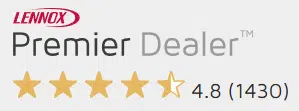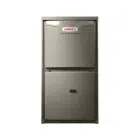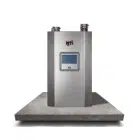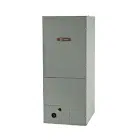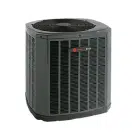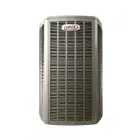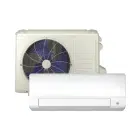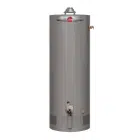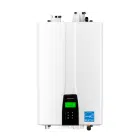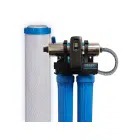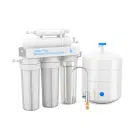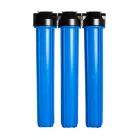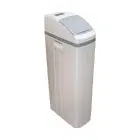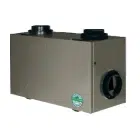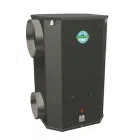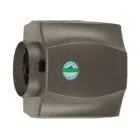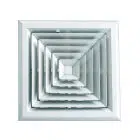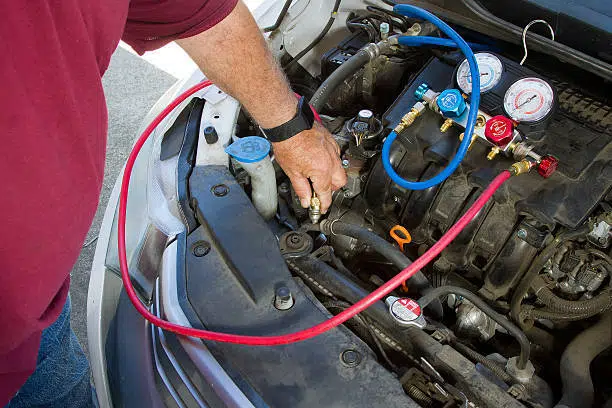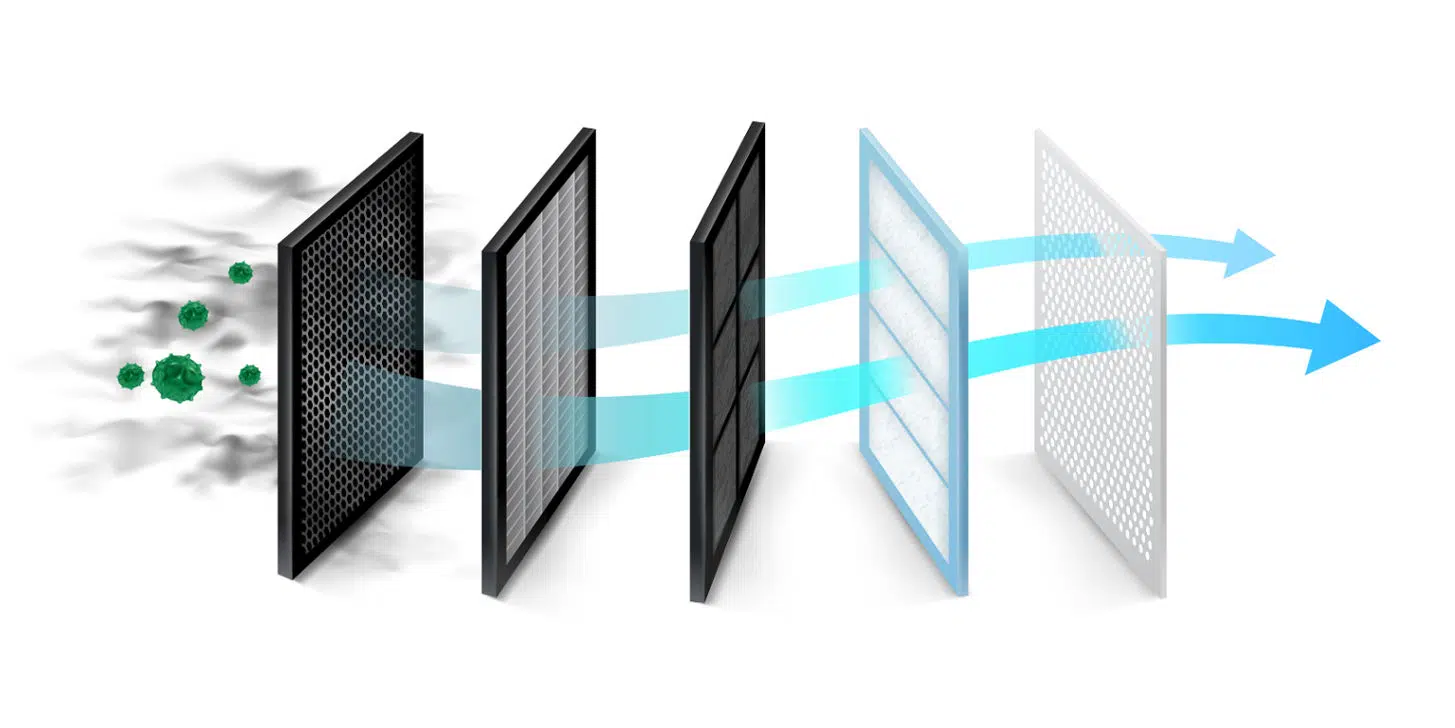
Table of Contents
- What Are HEPA Filters and How Can You Benefit from Using Them?
- How Do HEPA Filters Differ From the Standard Ones?
- Is It Worth Installing HEPA Filters in Your HVAC System?
- Choosing the Right HEPA Filter
- How to Install a HEPA Filter?
- Retrofitting and Compatibility: Integrating HEPA Filters with Your HVAC System
- Conclusion
In today’s fast-paced world, our homes serve as sanctuaries of comfort and respite. The quality of our indoor air has a profound impact on our well-being, and ensuring clean, fresh air within our homes has become a paramount concern. This is where the HEPA filters stand out. They can transform your indoor air quality, making your home a healthier, more comfortable place to live, breathe, and thrive. In this article, we explore the world of HEPA filters and how you can integrate them into your existing HVAC system.
What Are HEPA Filters and How Can You Benefit from Using Them?
Imagine a filter so efficient that it can trap tiny particles, including dust, allergens, and even microscopic bacteria and viruses. That’s precisely what HEPA filters are designed to do.
HEPA filters work by forcing air through a fine mesh that captures particles. They can capture particles as small as 0.3 microns, which includes the most common indoor pollutants. This makes them highly effective at improving indoor air quality. So, if you’re looking to reduce allergens, dust, and pollutants in your home, HEPA filters are a fantastic option. HEPA filters offer a wide array of benefits, including:
- Improved Indoor Air Quality: By capturing pollutants and allergens, HEPA filters significantly enhance the quality of the air you breathe, reducing allergy symptoms and respiratory issues.
- Health Benefits: For individuals with allergies, asthma, or other respiratory conditions, HEPA filters can provide relief by removing airborne irritants, promoting better health and well-being.
- Reduced Maintenance: HEPA filters can extend the life of your HVAC system by preventing particles from accumulating on sensitive components, reducing the need for frequent maintenance.
HEPA filters are your allies in creating a healthier indoor environment, making your home a haven of fresh, pure air.
How Do HEPA Filters Differ From the Standard Ones?
HEPA filters are a cut above the rest when it comes to filtration efficiency. Unlike standard HVAC filters, HEPA filters are designed with a remarkable 99.97% efficiency. This means they’re exceptionally effective at removing even the tiniest particles from your indoor air, including dust, pollen, pet dander, and airborne microorganisms. Standard filters, while helpful in trapping larger particles, typically cannot match the level of filtration provided by HEPA filters. So, if you’re seeking superior indoor air quality and a noticeable reduction in allergens and pollutants, HEPA filters are the way to go.
Feature | Standard Filters | HEPA Filters |
|---|---|---|
Filtration Efficiency | Good for larger particles | Exceptional for tiny particles (99.97% efficiency) |
Particle Size | Primarily target larger particles like dust and lint | Capture particles as small as 0.3 microns, including pollen, pet dander, and even bacteria and viruses |
Allergen Removal | Limited allergen removal | Highly effective at reducing allergens, making them ideal for allergy sufferers |
Energy Efficiency | Generally maintain good airflow with lower energy consumption | May lead to higher energy bills if the HVAC system’s motor isn’t powerful enough |
Initial Cost | Lower upfront cost | Higher initial cost, but long-term benefits in air quality |
Retrofitting Potential | Compatible with most HVAC systems | May require modifications for older HVAC systems |
Is It Worth Installing HEPA Filters in Your HVAC System?
While the benefits of HEPA filters are undeniable, there are other considerations to weigh before making the decision to install them in your HVAC system. One crucial factor to keep in mind is that most homes may not have a sufficiently powerful motor to maintain the airflow through HEPA filters, potentially leading to higher energy bills as your HVAC system works harder to push air through these dense filters.
Additionally, HEPA filters can be more expensive upfront compared to standard filters, although their long-term benefits in terms of improved indoor air quality often outweigh the initial investment. Careful consideration of these factors, alongside the undeniable health benefits, will help you determine whether HEPA filters are a worthy addition to your HVAC system.
We hope that now you have a clearer understanding of how much the water softener installation costs in Canada. Yet, you can also contact our HVAC experts who will be happy to help you with it.
Choosing the Right HEPA Filter
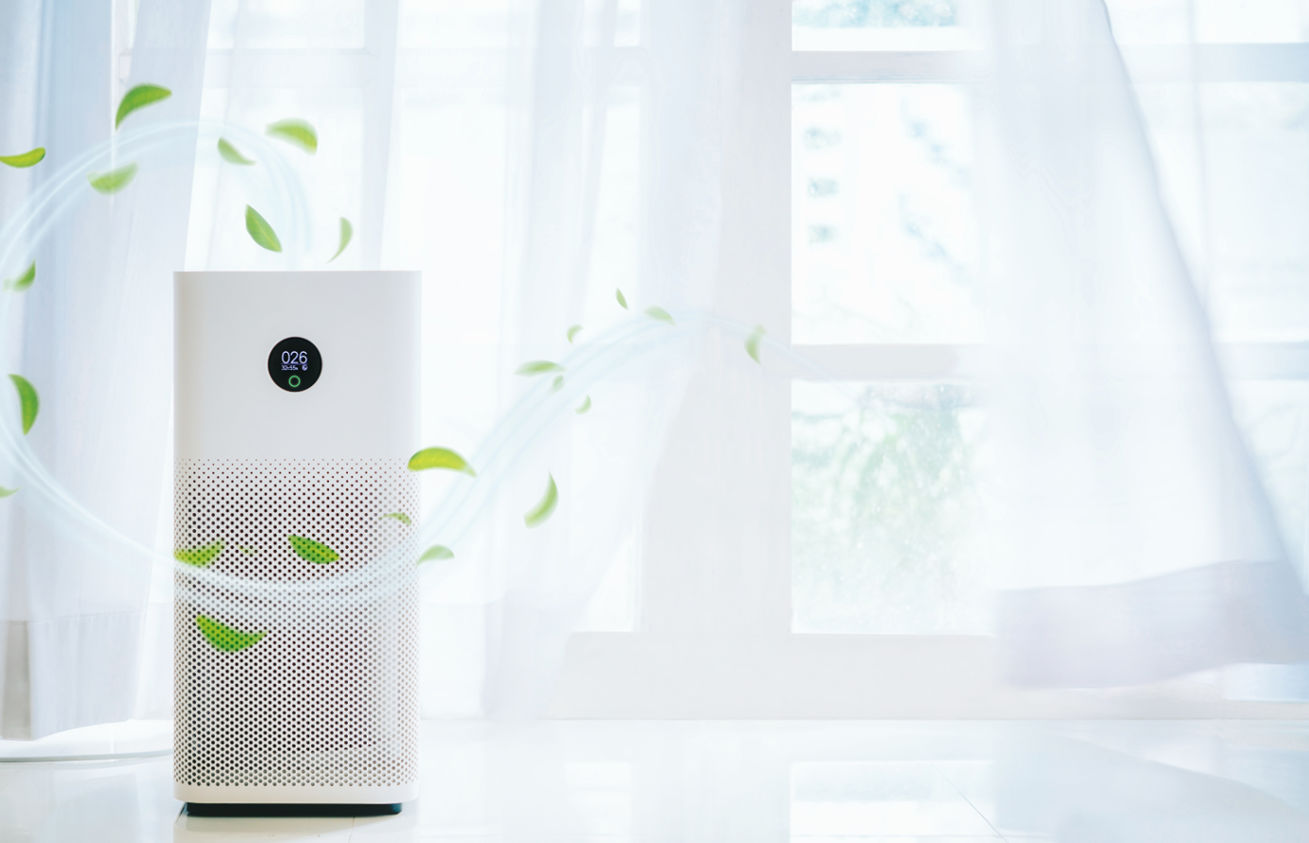
Now that we’ve established the benefits of HEPA filters and their potential to transform your indoor air quality, the next crucial step is selecting the right HEPA filter for your HVAC system. Below, we have provided all the information you need to know to make an appropriate choice.
Types of HEPA Filtration
HEPA filters come in various types, each type brings its unique advantages and considerations. But we would like to focus on two main types:
True HEPA Filters: These filters provide the highest level of filtration, capturing 99.97% of particles as small as 0.3 microns. True HEPA filters are the gold standard for indoor air quality improvement.
HEPA-Like or HEPA-Type Filters: While these filters may sound similar, they do not meet the same rigorous standards as True HEPA filters. They offer a lower level of filtration efficiency and are often used in less demanding environments.
Despite the type of HEPA filter you choose has great significance, here are more factors to pay attention to.
What to Look For in an Efficient HEPA Filter
To ensure that you’re getting the most out of your HEPA filter, consider the following aspects:
- Filtration Efficiency: Opt for a HEPA filter with a high filtration efficiency, ideally 99.97% or higher. This ensures that even the smallest particles are captured effectively, resulting in cleaner air.
- Compatibility: Ensure that the HEPA filter you choose is compatible with your specific HVAC system model. Consult your HVAC system’s manual or seek professional advice to verify compatibility.
- Size and Fit: Measure the dimensions of your current filter slot to select a HEPA filter that fits snugly. An ill-fitting filter can allow unfiltered air to bypass the system.
- Advanced Features: Consider HEPA filters equipped with advanced features such as smart sensors, filter replacement indicators, and quiet operation. Smart sensors can monitor air quality and adjust filtration levels as needed, enhancing overall efficiency. Filter replacement indicators notify you when it’s time for a new filter, ensuring consistent performance. Quiet operation ensures that your filter functions discreetly, maintaining a peaceful indoor environment.
Furher, we would like to get you acknowledged with the factor that stands out as the most critical when it comes to selecting the right HEPA filter for your HVAC system: MERV ratings.
What is MERV Rating?
The Minimum Efficiency Reporting Value (MERV) rating is a standardized measure of a filter’s efficiency. While typically associated with non-HEPA filters, MERV ratings can also be relevant when choosing a HEPA filter. For optimal performance:
- Aim for a High MERV Rating: For HEPA filters, look for a MERV rating of 13 or higher. This indicates a filter’s ability to trap even the smallest particles, ensuring superior indoor air quality.
- Balance with HVAC System Capacity: Keep in mind that higher MERV-rated filters can restrict airflow. Ensure that your HVAC system’s motor is powerful enough to handle the chosen MERV-rated HEPA filter without compromising performance.
MERV Rating | Particle Size Efficiency | Typical Application |
|---|---|---|
1-4 | Less than 10.0 microns | Residential Window AC Units |
6-8 | Less than 3.0 microns | Residential |
9-12 | Less than 1.0 micron | Homes, Better Residential |
13-16 | Less than 0.3 microns | Better Commercial, Superior Residential |
17-20 | Less than 0.3 microns | Hospital & General Surgery, Superior Commercial |
If you require the exceptional filtration of HEPA filters and have the budget, consider a whole-home filtration system integrated into your ductwork. This option allows the use of HEPA filters without standard HVAC system drawbacks, though it may result in higher utility bills.
How to Install a HEPA Filter?
We know, we know: installing a HEPA filter is not the easiest task. But it’s a rewarding endeavor that can significantly enhance the air quality in your home. For those who are up to the challenge and want to tackle the installation themselves, we’ve provided clear instructions to guide you through the process.
- Turn Off the HVAC System: Ensure your HVAC system is switched off to avoid any accidents.
- Locate the Current Filter: Find the location of your current filter in your HVAC system. It’s typically located near the air handler or furnace.
- Remove the Old Filter: Carefully remove the old filter and dispose of it properly.
- Insert the HEPA Filter: Insert your new HEPA filter, ensuring it fits securely in the filter slot.
- Restore Power: Turn your HVAC system back on and enjoy cleaner air.
If you’re not comfortable or experienced with HVAC systems, it’s best to hire a professional technician to avoid mistakes that will disrupt the proper operation of your HVAC system. They will ensure that the installation is done correctly and safely. Contact us for a professional HEPA filter installation via the link below and leave all your HVAC worries to us.
Retrofitting and Compatibility: Integrating HEPA Filters with Your HVAC System
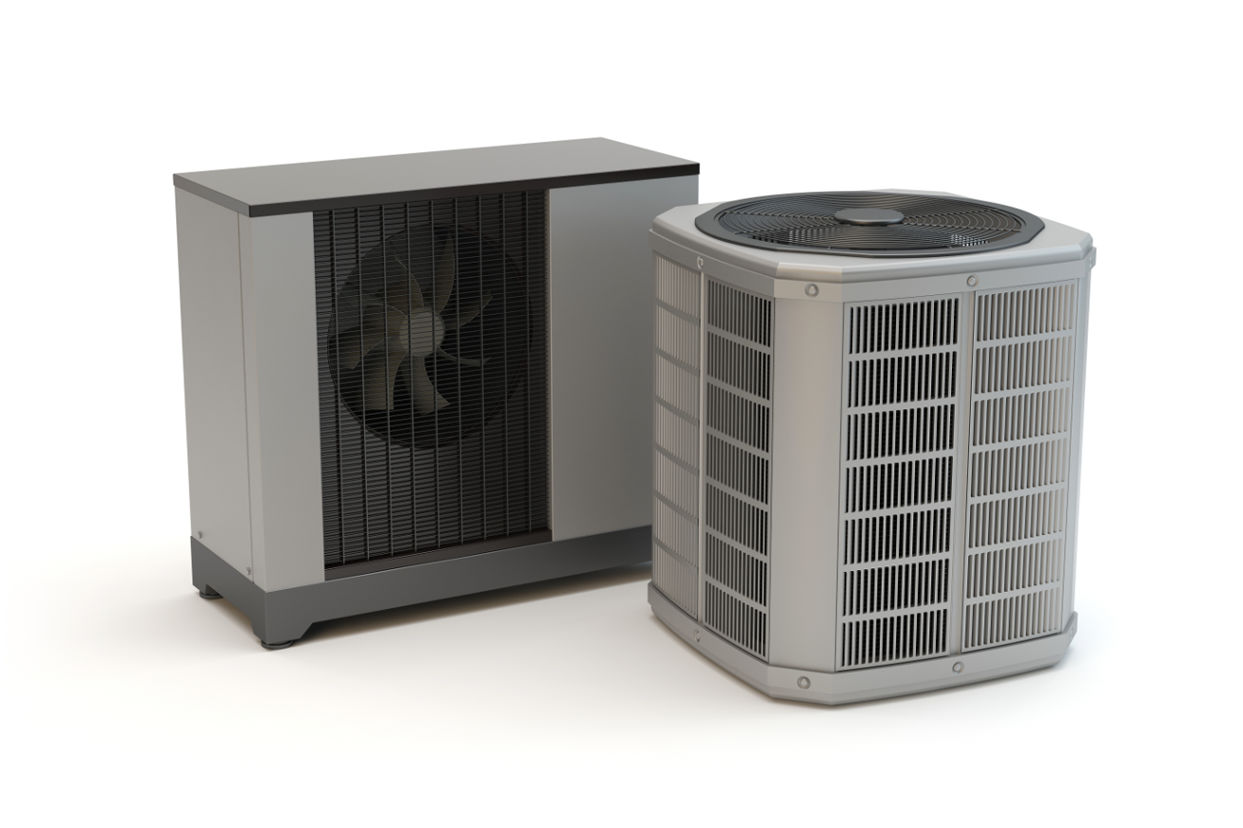
Now, here’s the question that often arises: Can you seamlessly integrate a HEPA filter into your existing HVAC system? The answer is a resounding yes, but it comes with some considerations. Below, we will discuss how HEPA filters can be integrated into various HVAC units.
Central HVAC Systems
Most central HVAC systems used in homes and commercial spaces offer the flexibility to integrate HEPA filters. These systems typically have a designated filter slot near the air handler or furnace, making the installation of HEPA filters relatively straightforward. Consult your HVAC system’s specifications and consider professional assistance for a seamless integration process.
Incorporating HEPA Furnace Filter
Furnace-based heating systems commonly found in residential settings can often accommodate furnace HEPA filters. However, compatibility can vary among furnace models.
By incorporating a HEPA furnace filter into your HVAC system, you can effectively remove allergens, dust, and other airborne contaminants, creating a healthier and more comfortable living environment. Regularly replace the HEPA furnace filter to maintain its effectiveness and ensure long-lasting benefits for your home’s air quality.
If you need some help choosing a furnace HEPA filter, check out our previous article via the link below.
Ductless Mini-Split Systems
Some ductless mini-split HVAC systems are engineered to work seamlessly with HEPA filters. These systems offer individual room or zone-specific filtration, improving air quality where needed most. If you have a ductless mini-split system and desire HEPA filtration, inquire about compatible filter options from your HVAC provider.
Retrofit Systems
In cases where your existing HVAC system may not inherently support HEPA filters, retrofit systems offer a solution. These specialized retrofit systems can be added to your ductwork to incorporate HEPA filtration. They are particularly useful for older or unique HVAC configurations. An HVAC professional can assess your system and recommend suitable retrofit options.
To make the most informed choice and navigate the compatibility landscape effectively, consult with an HVAC professional who can guide you toward cleaner, healthier air while ensuring a harmonious fit with your HVAC unit. Reach out to us if you have any questions about how to incorporate HEPA filter into your existing HVAC system, and we will be happy to help you.
Conclusion
In our quest for cleaner, healthier indoor air, modern HEPA filters are our magic solution. They can indeed be integrated into your HVAC system, provided that you consider compatibility, and specifications, and seek professional guidance when needed. Whether you have a central HVAC system, a furnace, an air handler, a ductless mini-split system, or require a retrofit solution, there are ways to introduce HEPA filtration into your home or commercial space and turn your house into the most comfortable place on earth.
Share
